Eileen Myles
Eileen Myles

A Working Life (paperback)
The first new collection since Evolution from the prolific poet, activist, and writer Eileen Myles, a “Working Life” unerringly captures the measure of life. Whether alone or in relationship, on city sidewalks or in the country, their lyrics always engage with permanence and mortality, danger and safety, fear and wonder.
a “Working Life” is a book transfixed by the everyday: the “sweet accumulation” of birds outside a window, a cup of coffee and a slice of pizza, a lover’s foot on the bed. These poems arise in the close quarters of air travel, the flashing of a landscape through a train window, or simply in a truck tooling around town, or on foot with a dog in all the places that held us during the pandemic lockdowns. Myles’s lines unabashedly sing the happy contradictions of love and sex, spill over with warnings about the not-so future world threatened by climate change and capitalism, and also find transcendent wonder in the landscapes and animals around us, and in the solitary and collective act of caring for one another and our world.
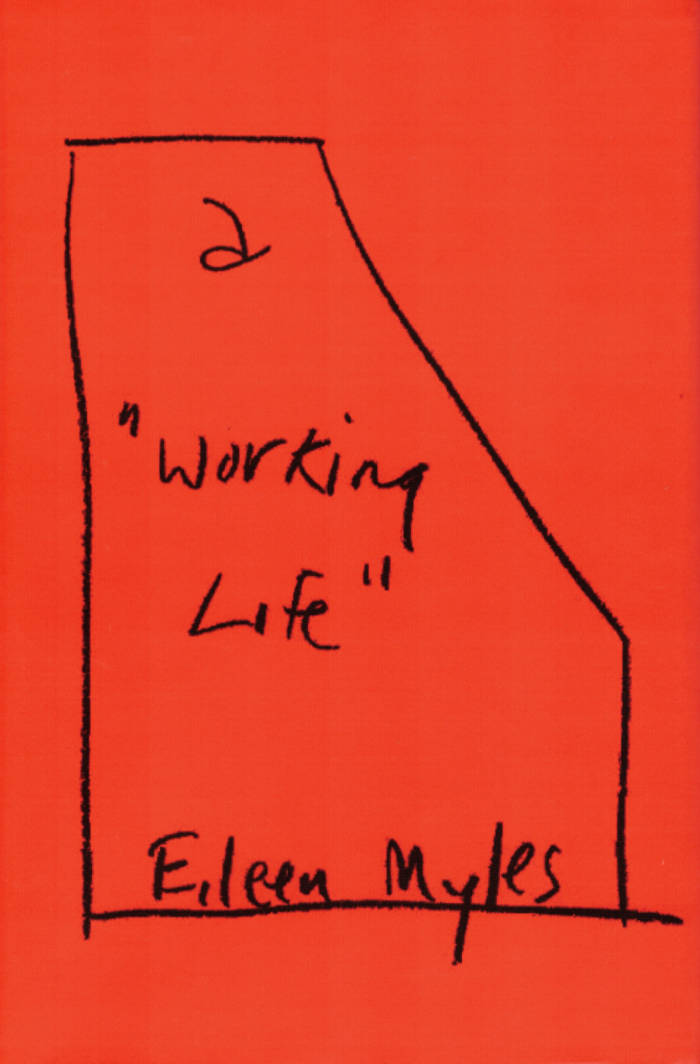
A Working Life
The first new collection since Evolution from the prolific poet, activist, and writer Eileen Myles, 'A Working Life' captures the measure of life. Whether alone or in a relationship, on city sidewalks or in the country, their lyrics always engage with permanence and mortality, danger and safety, fear and wonder. 'A Working Life' is a book transfixed by the everyday: the 'sweet accumulation' of birds outside a window, a cup of coffee and a slice of pizza, a lover's foot on the bed. These poems arise in the close quarters of air travel, the flashing of a landscape through a train window, or simply in a truck tooling around town, or on foot with a dog in all the places that held us during the pandemic lockdowns.

Pathetic Literature
A unique collection composed by the award-winning poet and writer, a global anthology of pieces from lesser-known classics by luminaries like Franz Kafka, Samuel R. Delany, and Gwendolyn Brooks to up-and-coming writers that examine pathos and feeling, giving a well-timed rehab to the word "pathetic"
"Literature is pathetic." So claims Eileen Myles in their bold and bracing introduction to Pathetic Literature, an exuberant collection of pieces ranging from poetry to theater to prose to something in between, all of which explore those so-called "pathetic" or sensitive feelings around which lives are built and revolutions are incited.
Myles first reclaimed the word for a seminar they taught at the University of California San Diego, rescuing it from the derision into which it had slipped and restoring its original meaning of inspiring emotion or feeling, from the Ancient Greek rhetorical method pathos. Their reinvention of "pathetic" formed the bedrock for this anthology, which includes a breathtaking 106 contributors, encompassing titans of global literature like Robert Walser, Jorge Luis Borges, Rumi, and Gwendolyn Brooks, queer icons and revolutionaries like Dodie Bellamy, Samuel R. Delany, and Bob Flanagan, as well as the invigorating newness and excitement of writers on the rise, including Nicole Wallace, Precious Okoyomon, and Will Farris. Creative nonfiction by Karla Cornejo Villavicencio, Jack Halberstam, and Porochista Khakpour rubs shoulders with poetry by Natalie Diaz, Victoria Chang, Lucille Clifton, and Ariana Reines, all joined by prose from Chester Himes, Djuna Barnes, Chris Kraus, and Qiu Miaojin, among so many others. The result is a matchless anthology that is as much an ongoing dialogue as an essential compendium of queer, revolutionary, joyful, and always moving literature.
From confrontations with suffering, embarrassment, and disquiet, to the comforts and consolations of finding one's familiar double in a poem, Pathetic Literature is a swarming taxonomy of ways to think differently and live pathetically on a polarized and fearful planet.

Evolution
"In Eileen Myles's newest book of poetry, Evolution, we encounter an arrival, a voice always becoming, unpinnable and queer. Myles's new poems are transformations, and perhaps a culmination of the poet's previous inquiries into love, gender, poetry, America, and its politics . . . The form of Myles's work rivals its subject matter in intimacy. The lines in Evolution are physical, a body unleashed but not yet comfortable and not without fear. The short lines rush down the page, movement as touch, touch as freedom." — Natalie Diaz, New York Times Book Review
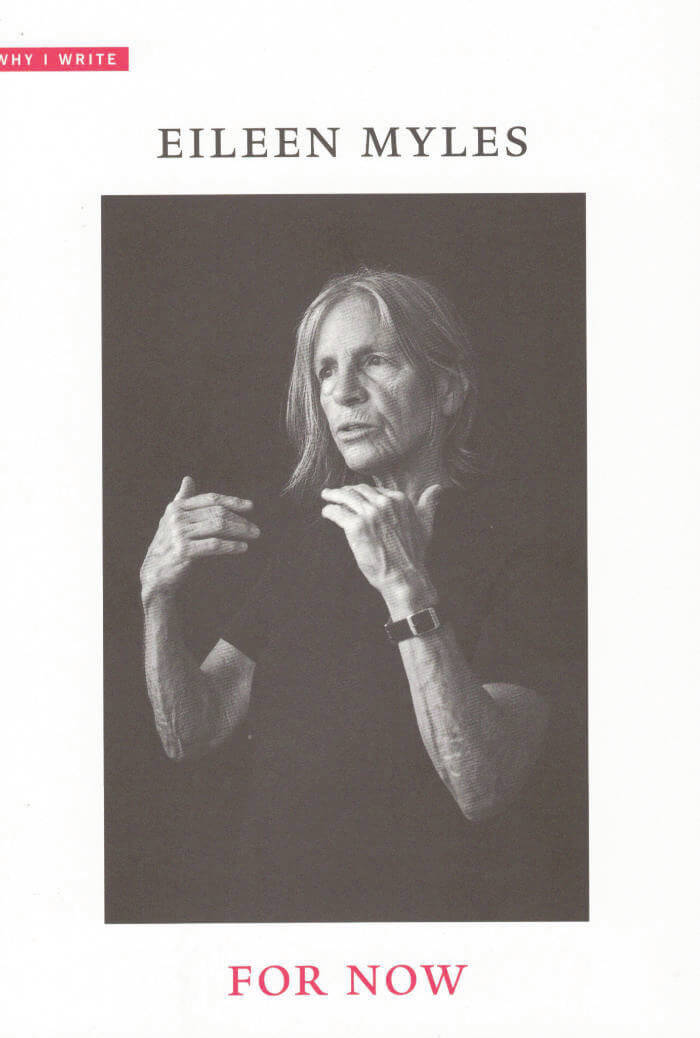
For Now (paperback)
In this third Why I Write volume, Eileen Myles addresses the social, political, and aesthetic conditions that shape their work.
In this raucous meditation, Eileen Myles offers an intimate glimpse into creativity's immediacy. With erudition and wit, Myles recounts their early years as an awakening writer; existential struggles with landlords; storied moments with neighbors, friends, and lovers; and the textures and identities of cities and the country that reveal the nature of writing as presence in time.
For Myles, time's "optic quality" is what enables writing in the first place, as attention, as devotion, as excess. It is this chronologized vision that enables the writer to love the world as it presently is, lending love a linguistic permanence amid social and political systems that threaten to eradicate it. Irreverent, generous, and always insightful, For Now is a candid record of the creative process from one of our most beloved artists.
Paperback edition - 2021.
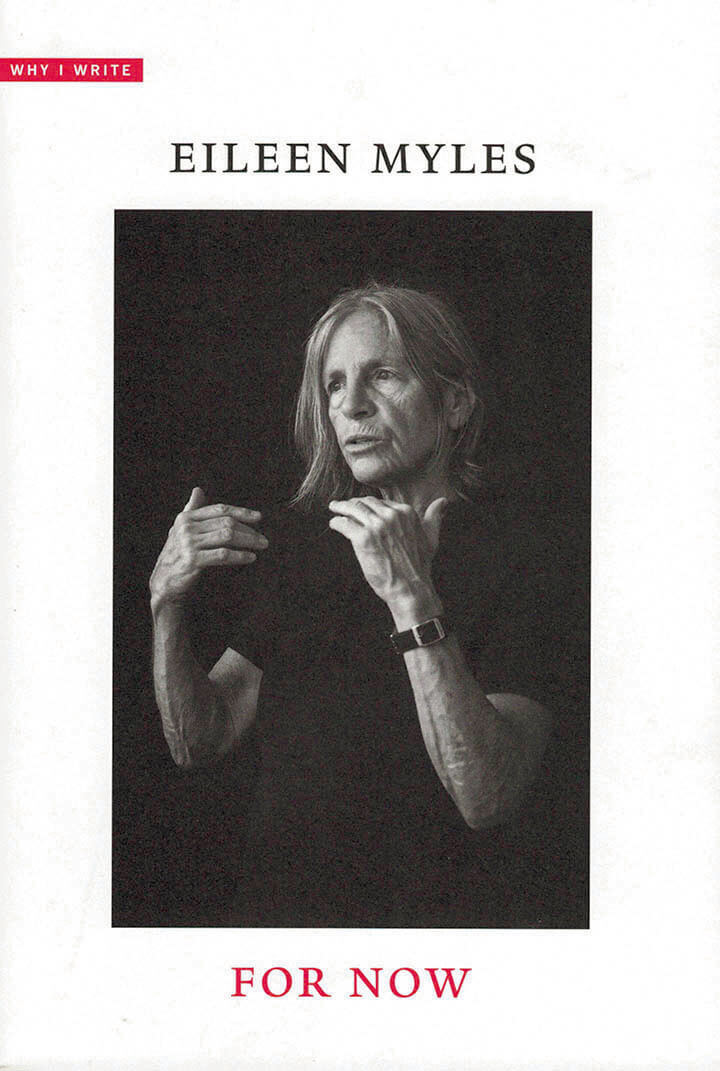
For Now
In this third Why I Write volume, Eileen Myles addresses the social, political, and aesthetic conditions that shape their work.
In this raucous meditation, Eileen Myles offers an intimate glimpse into creativity's immediacy. With erudition and wit, Myles recounts their early years as an awakening writer; existential struggles with landlords; storied moments with neighbors, friends, and lovers; and the textures and identities of cities and the country that reveal the nature of writing as presence in time.
For Myles, time's "optic quality" is what enables writing in the first place, as attention, as devotion, as excess. It is this chronologized vision that enables the writer to love the world as it presently is, lending love a linguistic permanence amid social and political systems that threaten to eradicate it. Irreverent, generous, and always insightful, For Now is a candid record of the creative process from one of our most beloved artists.

The New Fuck You
Borrowing its name from the notorious '60s Ed Sanders magazine, Fuck You: A Magazine of the Arts, the editors have figured a way to rehone its countercultural and frictional stance with style and aplomb. A unique and provocative anthology of lesbian writing, guaranteed to soothe the soulful and savage the soulless. Includes Adele Bertei, Holly Hughes, Sapphire, Laurie Weeks, and many more.
And more

Worms Issue 11: Faith & Worship
Caitlin McLoughlin, Clem Macleod and 2 more
The theme for each issue of Worms tends to emerge steadily as gathering clouds. Often there is a nebulous sense of something that we want to explore, unripe fruits plucked from things we have read and heard and pocketed without much thought for later examination. It’s only when our pockets grow heavy, when ideas amass into something worthy of a second glance, that we start to name them. In the case of this one, our eleventh issue, its theme has its roots in the previous. The Love Issue—released in July 2025—explored love in all its guises: radical, complex, beautiful, violent. But in our study of the heart’s infinite mysteries there lurked an undercurrent of something else. Faith, close to love, was a persistent reoccurrence. Devotion, strength, clarity, refuge – these emerged as dimensions of love that can also be mapped across a search for something beyond the material. Worms 11: Faith & Worship began here.
FEATURING: Lamorna Ash, Clare Carlisle, Fanny Howe, Chris Kraus, Eileen Myles, Kazim Ali, Fiona Alison Duncan, Lauren J. Joseph, Olivia Laing, aja monet, Charlotte Northall, Arpan Roy, Noura Salahaldeen, Sarah Schulman, Michelle Tea.
CONTRIBUTORS: Temperance Aghamohammadi, Alaa Alqaisi, RZ Baschir, Sarah Burgoyne, F. Tibiezas Dager, Giulia De Vita, Helena Geilinger, Misha Honcharenko, Courtney Ann LaFaive, Ozziline Mercedes, Nicko Mroczkowski, Evie Reckendrees, Charlie Stuip, Clár Tillekens, Phoenix Yemi.
PHOTOGRAPHERS: Antonia Adomako, Eve Delaney, Jen Dessinger, Isabel Maccarthy, Britteny Najar, Katarzyna Postaremczak, Honor Weatherall.
ILLUSTRATORS & ARTISTS: Clara Esborraz, Eric Hesselbo, Lily Makoski, Samantha Rosenwald, Ivy Shepherd-Barron, Mary Watt, Shu Hua Xiong.
EDITORS: Caitlin McLoughlin, P. Eldridge, Clem MacLeod, Arcadia Molinas.
Proof Reader: Annalise June Kamegawa.
DESIGN: Caitlin McLoughlin & Clem MacLeod.
RUNWAY JOURNAL SUPPLEMENT
Contributors: Wassila Abboud, Anna Carlsson, Alexander Cigana, Bree Turner, Amelia Zhou.
Editors: Debris Facility, Ena Grozdanic, Victoria Pham.
Runway Supplement Design: SM Studio (Safiye Gray & Molly Cranston).
Cover Credits: Photo of Fanny Howe by Lynn Christoffers, Illustration by Mary Watt.

Tripwire 16 - Performance/Writing
A special issue focused on performance writing, with work by Tanya Lukin Linklater (with Michael Nardone), Jibade-Khalil Huffman & Simone White, Jean-Thomas Tremblay, Claudina Domingo (trans. Ryan Greene), Kim Rosenfield, Nathan Walker, Liz Knox, Rona Lorimer, Léo Richard, & Hector Uniacke, Mohamed A. Gawad & Dalia Neis, Mei-mei Berssenbrugge & Teddy Yoshikami, interviewed by Michelle N. Huang, Kyoo Lee and Jocelyn Saidenberg, Adriana Garriga-López, Gabrielle Civil, plus a Kevin Killian Tribute, with Eileen Myles * Scott Hewicker * Cliff Hengst * Karla Milosevich * Craig Goodman * Michelle Rollman * Anne McGuire * Wayne Smith * Tanya Hollis * Steve Orth * Lindsey Boldt * Maxe Crandall * Arnold J. Kemp * Carla Harryman, Lee Ann Brown & Tony Torn * Susan Gevirtz * Laynie Browne * Patrick Durgin * Norma Cole * Jo Giardini. & reviews: Jessica Lopez Lyman & Jocelyn E. Marshall on Gabrielle Civil, alex cruse on Merce Cunningham, Rob Stanton on Anne Boyer, Jack Chelgren on Miyó Vestrini, David Grundy on Stephen Jonas, Virginia Konchan on Sarah Vap.

Textdemic: A Retrospective on Jenny Holzer’s Laments
Textdemic | A Retrospective on Jenny Holzer’s Laments” Ed. by A.L. Steiner and GenderFail, a publication based on A.L. Steiner + Friends on Jenny Holzer at Dia Chelsea. This book is based on the Artists on Artists Lecture Series when the Dia Art Foundation invited Steiner to curate a public program based on a work of the artist's choice.
Steiner chose Jenny Holzer’s Laments and invited Morgan Bassichis, Riel Bellow, Gregg Bordowitz, Alexander Chee, Malik Gaines, Guadalupe Maravilla + Alexa Mishell Guillen, Lucas Michael, Eileen Myles and Pamela Sneed to present in Dia’s first in-person program after the Covid-19 pandemic began in 2021. This publication features records of the poems, lectures, and performances during this memorial program. The book's design plays homage to the 1990 Laments publication by the Dia Art Foundation.
For this publication, Steiner and GenderFail invited Matilde Guidelli-Guidi, Associate Curator at Dia Art Foundation and the organizer of the Artists on Artists Lecture Series, to write an afterword for the book. In this, she states: "Dispensing altogether with the monographic formula that characterizes the institution, for her Lecture A.L. Steiner convened a group of artists, writers, and activists to join her in responding to Jenny Holzer’s 1989 text-based installation, Laments. Holzer identified the thirteen texts that comprise Laments as 'voices of the dead,' a visual choir in response to the raging HIV/AIDS epidemic and government inaction. Over the protracted COVID-19 lockdown, Steiner developed the idea to organize an evening for the voices of the living to lament today's crises.”

A Garden Manifesto
What do gardens mean and how can they change the world? A Garden Manifesto gathers radical visions rooted in the earth from artists, writers, gardeners and activists, among them Lubaina Himid, Derek Jarman, Jamaica Kincaid, Ana Mendieta, Dan Pearson and Wolfgang Tillmans. It’s a seed box for an uncertain future, packed with anarchic dreams of Eden-making and humming with resistance to the colonial project of homogenisation and destruction.
Featuring William Blake, Joe Brainard, Jonny Bruce, John Clare, Gerry Dalton, Ellen Dillon, Baha Ebdeir, Alys Fowler, Magdalena Suarez Frimkess, Gaylene Gould, Green Guerillas, Joy Gregory, Fritz Haeg, Lubaina Himid, Philip Hoare, Rosie Hudson, Derek Jarman, Chantal Joffe, Laura Joy, Jamaica Kincaid, Elisabeth Kley, Olivia Laing, Jeremy Lee, Siobhan Liddell, Alison Lloyd, Hilary Lloyd, Jo McKerr, Lee Mary Manning, Ana Mendieta, Bernadette Mayer, Rosemary Mayer, Huw Morgan, Eileen Myles, Hussein Omar, Palestinian Heirloom Seed Library, Ian Patterson, Dan Pearson, Jean Perréal, Charlie Porter, Pat Porter, J. H. Prynne, Claire Ratinon, Jamie Reid, Lisa Robertson, Kuba Ryniewicz, Saadi, Sui Searle, Sei Shōnagon, Colin Stewart, Tabboo!, Edward Thomasson, Wolfgang Tillmans, Scott Treleaven, John Wieners, David Wojnarowicz, Matt Wolf and Sarah Wood
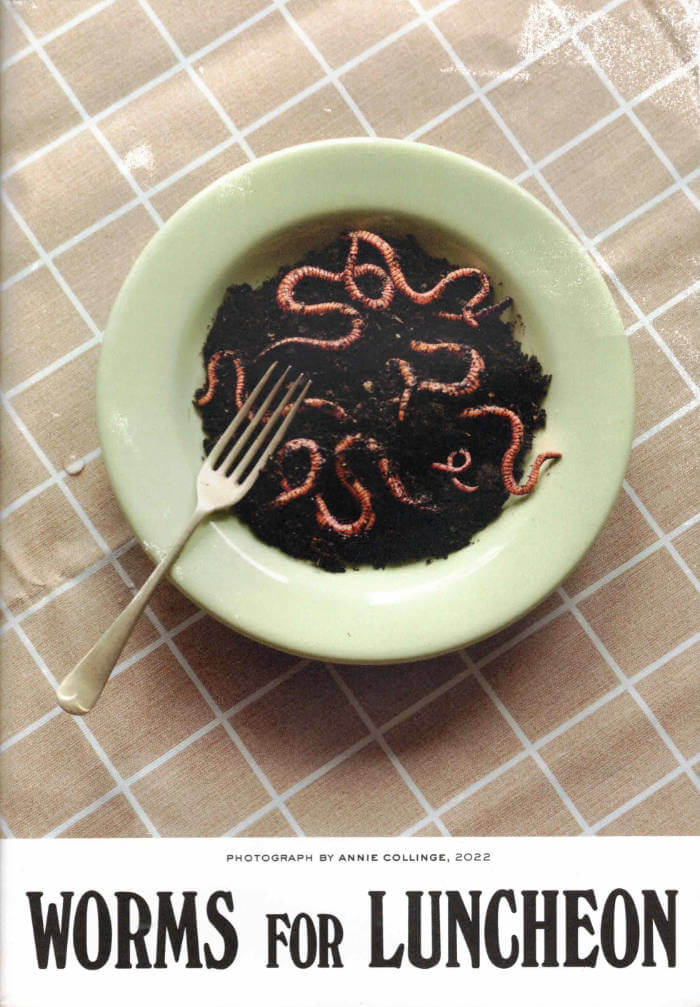
Worms For Luncheon
Worms and Luncheon have come together to bring the tastiest of fertilisers, to accompany your lunch for one. Think of this publication as a wine pairing for bookworms. Each story has been tailored to your taste, with a serving suggestion accompanying each piece. Not to be read in the company of others, and only to be consumed with food.
Featuring contributions from Eileen Myles, Cecilia Pavón, Clem MacLeod, Kate Morgan, Pierce Eldridge, Juliet Jacques, Lynne Tillman, Estelle Hoy, Jodie Hill, Leone Ross, Slutty Cheff, Izdihar Afyouni, Gabriela Aquije and Stephanie LaCava. With photographs by Chieska Fortune Smith.
The 88 page thread bound publication consists of poetry, short stories, personal essays, illustrations and photographs of the cosiest spots to dine alone in.
Concept initiated by Clem MacLeod and France Armstrong Jones
Writing Commissioned by Clem MacLeod
Editors Clem MacLeod, Caitlin McLoughlin, Pierce Eldridge, Arcadia Molinas and Violet Conroy
Cover image by Annie Collinge
Art direction and design by Caitlin McLoughlin and Mariana Sameiro
Illustrations by Clemmie Bache
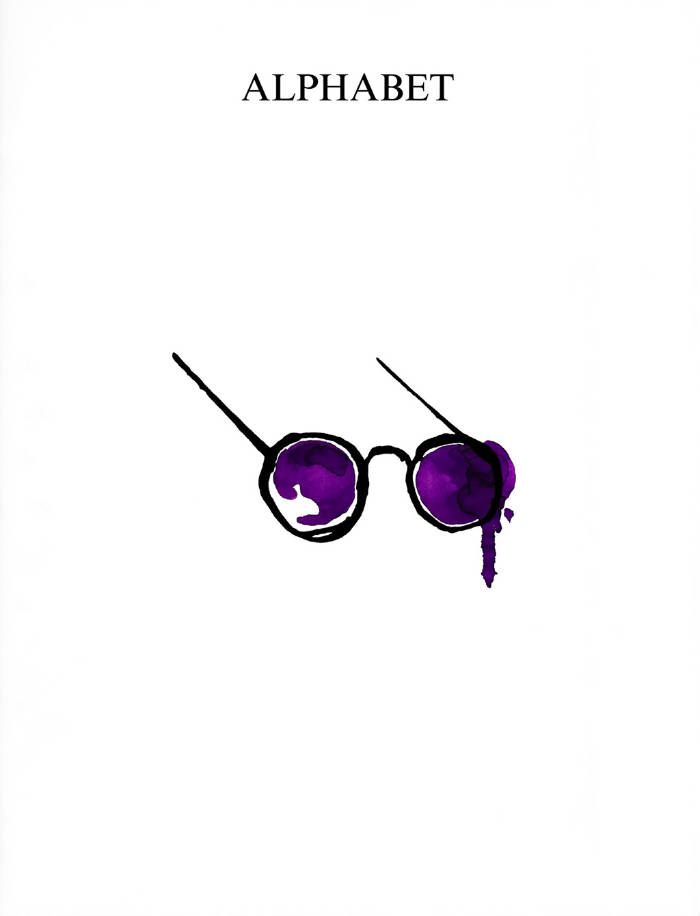
Alphabet Magazine #01
The first issue of the magazine made by artists, founded by Donatien Grau and Thomas Lenthal. Contributions by Mathias Augustyniak, Naomi Campbell, Théo Casciani, Michael Chow, Pan Daijing, Es Devlin, Claire Fontaine, Edwin Frank, Theaster Gates, Nicolas Godin, Alejandro Jodorowsky, Hedi El Kholti, Michèle Lamy, Paul McCarthy, Ian McEwan, Eileen Myles, Marc Newson, Hans Ulrich Obrist, Diana Widmaier Picasso, Ariana Reines, Barbara Chase-Riboud, Julian Schnabel & Jason Momoa, Hanna Schygulla, Juergen Teller, Iké Udé, McKenzie Wark, Robert Wilson, Yohji Yamamoto.
Alphabet is the artists' magazine. Here, they run the show. They write, they make images, they select their own works, they interview the figures they admire, they tell us what we did not know about them nor could have ever fathomed about life. This magazine is conceived entirely to put them in the driver's seat, and to enable readers to become part of the unique vision of some of today's greatest luminaries.
It is a manifestation of the creative community, coming together from all fields, from all generations and threads of culture. Writers, musicians, designers, painters, sculptors, poets—artistic figures of every kind converse all the time in their lives, but they did not have a shared space for their editorial projects. This is it.
Everyone who finds their way into Alphabet has made a mark on life, art, and culture, in a way that signals their importance to the present. Some of the contributors may be world famous, others well respected, others on the way to becoming the legends they already are. Their relevance to culture is the same, and that is why they all belong here, in the endeavor of the creative community. There is no hierarchy of status, or domain, or apparent impact. Some of the greatest revolutions happen undercover. Some of the most established voices are still breaking ground. The magazine's premise is simple: the old opposition between pop and underground does not make sense anymore. There are many creative communities, each following its own rules, each inventing its own space. Here, wherever they come from, whatever their community, artists can exist together, with the same intention of changing, and improving, what life is; with the same belief that art matters more than anything else.
None of the contributors is here randomly. They keep life thrilling and exhilarating, challenge the perception of everything and anything. Their role in shaping every aspect of life can hardly be overstated. That is why they needed a place to elaborate their own alphabet, their way of ordering and structuring language, the world, and the fabric of life—a place of freedom, where everything would be done to highlight their visions, where the very design would be a shrine to their magic. Even the distribution of the magazine was conceived with artists—each contributor suggesting sites of their liking.
Alphabet is also the magazine of magazines. Here, readers find essays, fictions, poetry, visual projects, DIY methods, recommendations from those who know, even games and astrology—and an artist's alphabet, articulating an entire universe. Anything that has ever formed a section of a magazine could find its way here. Even the cover is conceived by an artist: it was conceived especially by the legendary Robert Wilson. Artists will rejuvenate what magazines are, and magazines will be kept forever young by and with them.
Founded by Donatien Grau and Thomas Lenthal, Alphabet is a bi-yearly art magazine. Not a magazine about art. It's a magazine made by artists. Each contribution like an œuvre, making it the ultimate collector piece. Each cover is designed, with the word Alphabet, by a different artist, initiating a cult series.

Groove, Bang and Jive Around
New edition of Steve Cannon's riotous 1969/71 erotic novel Groove, Bang and Jive Around, "an underground classic of such legendary stature that New York's black cognoscenti have transmogrified the work into urban myth," with a foreword from Darius James and an afterword by poet Tracie Morris.
Despite decades of notoriety as one of the "filthiest books in the world," Steve Cannon's first and only novel, Groove, Bang and Jive Around, has hardly been read since first being published by the Paris- based Ophelia Press in 1969.
Due to its scarcity, the New York Press deemed it "an underground classic of such legendary stature that New York's black cognoscenti have transmogrified the work into urban myth." This debut, revised for release by Olympia Press in 1971, cemented Cannon's place as a stalwart of the East Village and key figure in New York's black avant-garde—inspiring a generation to break with staid literary modernism, according to Cannon's friend and collaborator Ishmael Reed, for whom its release "signaled a resurfacing of the irreverent, underground trickster tradition of black orature." Seeped psychedelia and hoodoo, this erotic farce follows Anette, a fourteenyear- old runaway, from the outhouse of a New Orleans juke joint to the land of Oo-bla-dee, a realm of bacchanalian self-determination founded by Dizzy Gillespie. Inspired equally by Chester Himes and Women's Liberation, the author claims—as Ophelia put it, Groove, Bang and Jive Around is an absolute necessity "for everyone who wants to know where and how the action takes place in Sex and Soul."
"If there's a dirty prayer, this is it. Groove, Bang and Jive Around will invariably piss people off, that's the plan and its delight. It's gorgeously uneven, like a country road, it's squawking & sonorous like great live music, indeed, it is that. Groove, Bang is poetry and a novel out loud, and Steve Cannon, who wrote it was a huge heckler and a funny man and I wish I could thank him for this wonderful disturbing, deeply wrong (hot) and light-footed book that somehow fell out of reading history he has given us and now it has fallen back in."—Eileen Myles, author of a Working Life
Steve Cannon (1935-2019) was a writer who shaped the literary history of Manhattan's Lower East Side. He was the founder and executive director of A Gathering of the Tribes, an East Village nonprofit and exhibition space, and the publisher of a magazine of the same name. Tribes, which operated from Cannon's Alphabet City townhouse, functioned as a salon where artists and musicians such as David Hammons, Sun Ra, and Butch Morris could reliably be found among a cohort of younger poets emerging from the Nuyorican Poets Café scene. Born to a preacher in New Orleans, Cannon relocated to New York from England in 1962, where, alongside such luminaries as Amiri Baraka and Calvin C. Hernton, Cannon joined the Umbra Workshop, a cornerstone of the 1960s African American avant-garde poetry and publishing. In 1973 he, Ishmael Reed, and Joe Johnson cofounded the influential literary and audio/visual imprint Reed, Cannon, and Johnson. As a poet, playwright, and professor, Cannon mentored a generation of writers including Eileen Myles and Paul Beatty, and taught across the City University of New York system for more than three decades.

Fortune Teller
Sticky Fingers' Fortune Teller features wisdom from McKenzie Wark, Octavia E. Butler, Kate Zambreno, bell hooks, Clarice Lispector, Eileen Myles, Kathy Acker, Johanna Hedva, Lou Sullivan, Audre Lorde, June Jordan, and Anne Boyer.
A3, single colour risograph
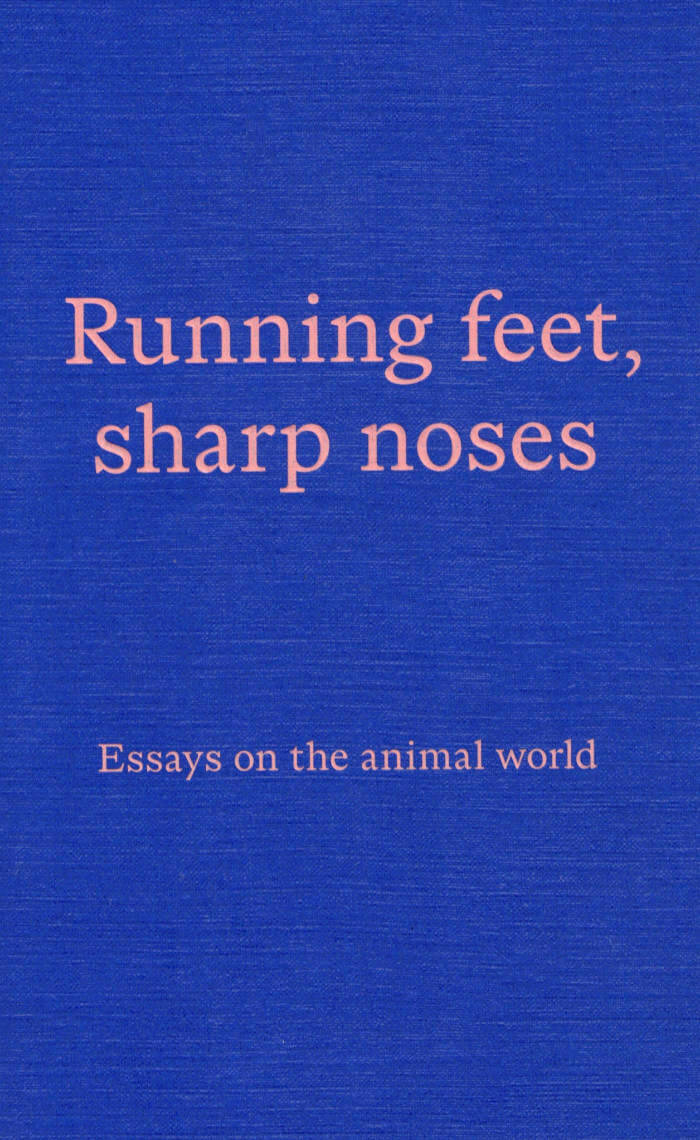
Running feet, sharp noses
and Niamh Dunphy, Adrian Duncan and 1 more
Edited by Nathan O’Donnell, Adrian Duncan, and Niamh Dunphy, Running feet, sharp noses: Essays on the animal world is a collection of essays on the animal world. Each piece is a meditation on how animals affect our sense of self, our memories, our actions.
With contributions by Latifa Akay, Sara Baume, John Berger, June Caldwell, Niamh Campbell, Vona Groarke, Edward Hoagland, Sabrina Mandanici, Darragh McCausland, Tim MacGabhann, Honor Moore, Eileen Myles, Stephen Sexton, Jessica Traynor, Erica Van Horn, and Suzanne Walsh.
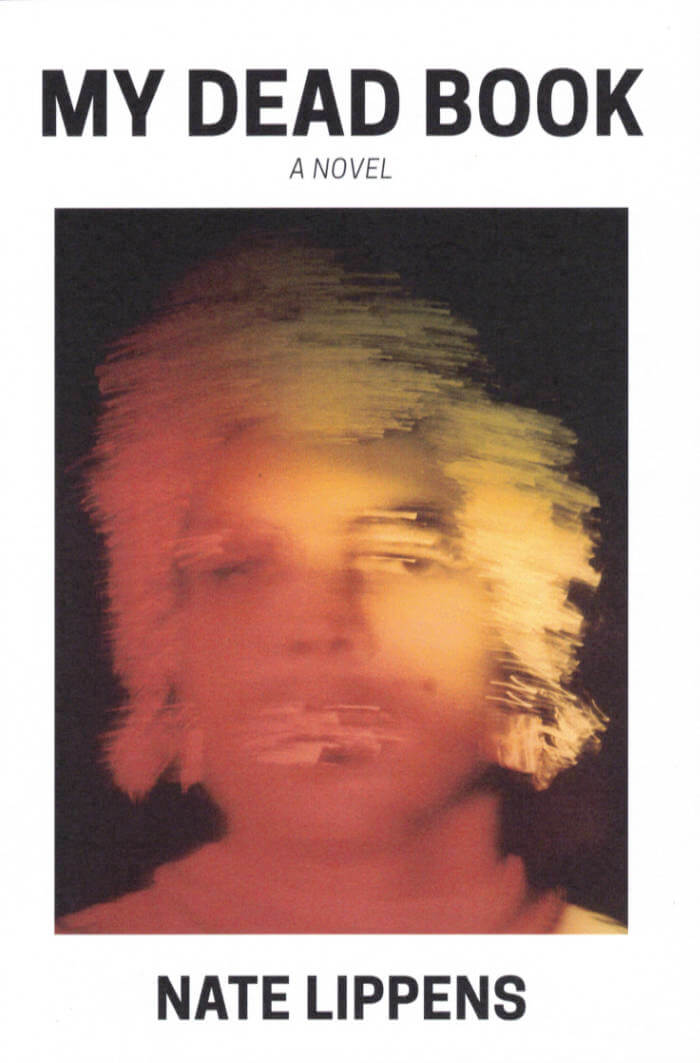
My Dead Book: A Novel
My Dead Book is a novel composed of nonlinear vignettes and fragments about a queer man approaching his fiftieth birthday who is haunted by insomnia and his past. In the dead of night, he remembers his friends who died in the late 1980s and 1990s, his years as a teenage throwaway and sex worker, and ruminates on working class survival, queer aging, AIDS, and whether he has outlived his place in the world.
“What a blistering book—with My Dead Book, Nate Lippens has created something truly fucking great. It's as if the storied stars of Lou Reed's 'Walk on the Wild Side' overshot Manhattan and wound up in Wisconsin, broke and blue with cold and depressed beyond belief by the thought that this nowhere is now home. It's a bitter pill, but I love bitterness, and who doesn't love pills?”— Derek McCormack, author of Castle Faggot
“There’s no doubt to this book. You’d think that was a flaw but it’s been burned away. My Dead Book is not short though it is brief. It’s loving, bittersweet, and actually courageous because it tells a story that is slightly unbearable because it’s all secret, awful hard bad secrets and funny as hell. Nate’s balancing act works because the heart of it (this novel) is true even though it’s often heartless. It’s simple. He knows what things are worth. When you need the sea or a bird they’re there like they never were before.”
— Eileen Myles, author of Afterglow
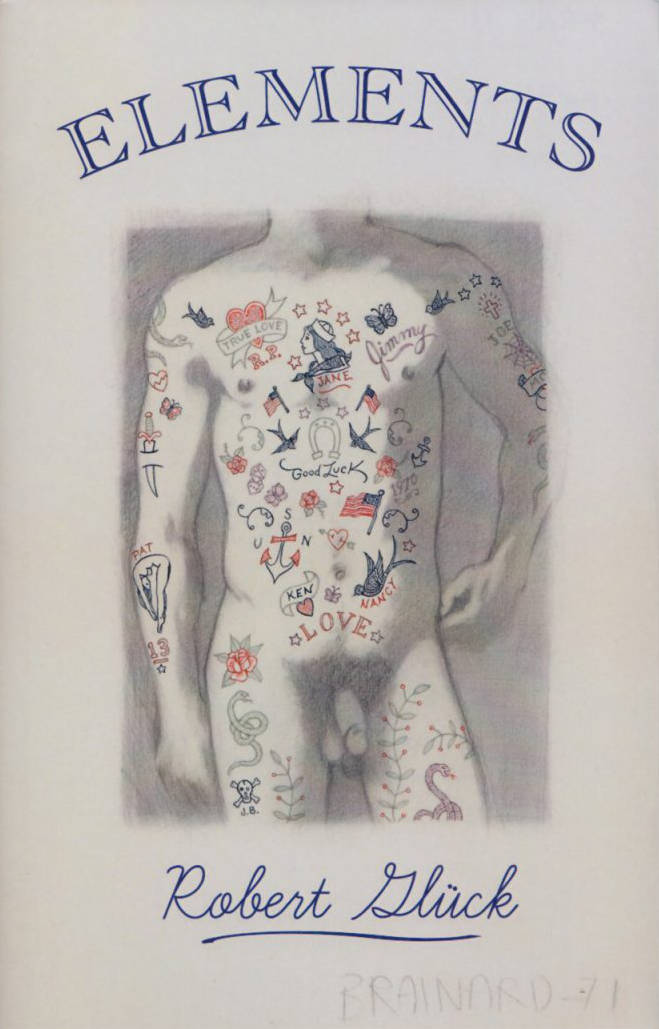
Elements
This collection of stories by Robert Gluck was originally published in 1982 in San Francisco by Four Seasons Foundation under the title ELEMENTS OF A COFFEE SERVICE.
"Bob's fiction is actually quite friendly yet he cuts it with a knife. Bob's gift to the history of letters I think is the uncanniness of his flow. He pulls down the page like a shade, it's masterful what he does. His page is more filled with light than words, really. More filled with temperature too." - Eileen Myles, from the preface to Elements
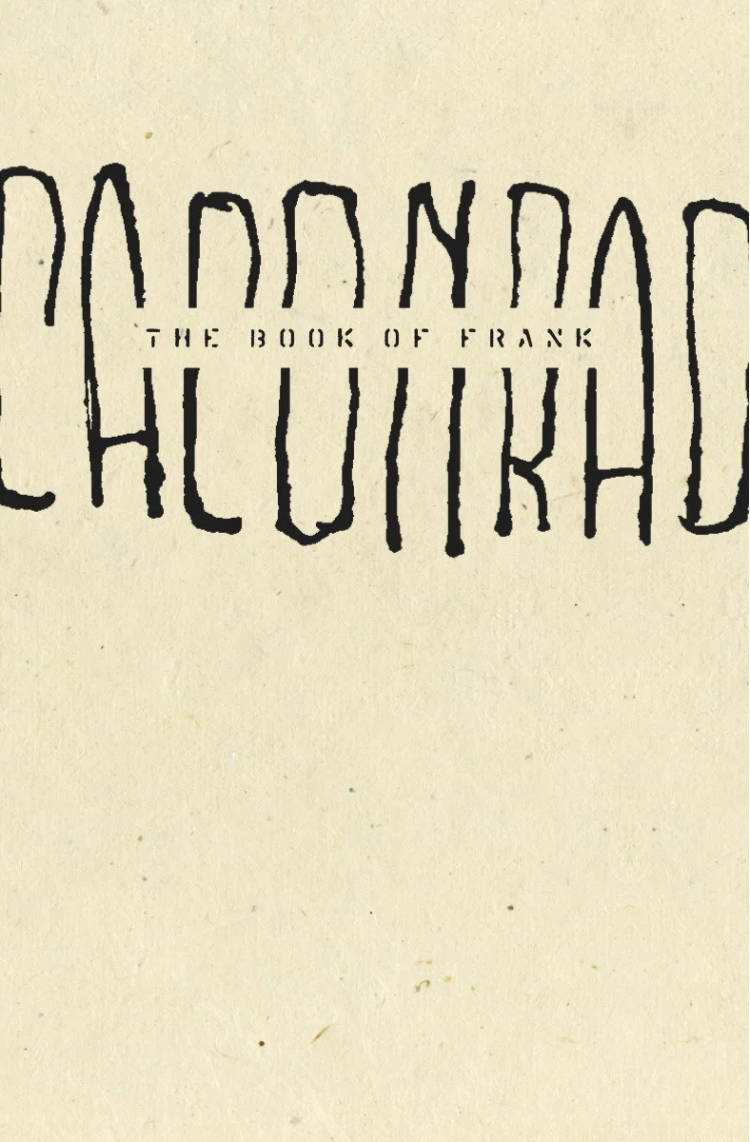
The Book of Frank
A portrait equal parts hope and cruelty, this searing, compelling book is an enduring fan favorite by Philadelphia-based poet CAConrad.
The poems capture moments, and they don't explain themselves. But, cumulatively, they invoke a sense of what it is like to be almost supernaturally sensitive, empathic, curious, responsive. In short: what it feels like to be a poet, possessed by a muse. - Charles Kruger, The Rumpus
I've grown to love CA Conrad—the man, the work, and all he attempts and represents—because he always argues (from the inside of his poems) for a poetry of radical inclusivity while keeping a very queer shoulder to the wheel. His kind of queerness strikes me as nonpolarizing, not intentionally but because of the fullness of his exposition, a kind of gigantism that seems to me to be most deeply informed by love, and a tenderness for the ravages and tumult of existence. - Eileen Myles
CAConrad is the author of The Book of Frank (Wave Books, 2010/Chax Press, 2009). He is also the author of Advanced Elvis Course (Soft Skull Press, 2009), (Soma)tic Midge (Faux Press, 2008), Deviant Propulsion (Soft Skull Press, 2006), and a collaboration with poet Frank Sherlock titled The City Real and Imagined (Factory School, 2010). The son of white trash asphyxiation, his childhood included selling cut flowers along the highway for his mother and helping her shoplift. In 2011, he was awarded a Pew Fellowship by the Pew Center for Arts & Heritage.
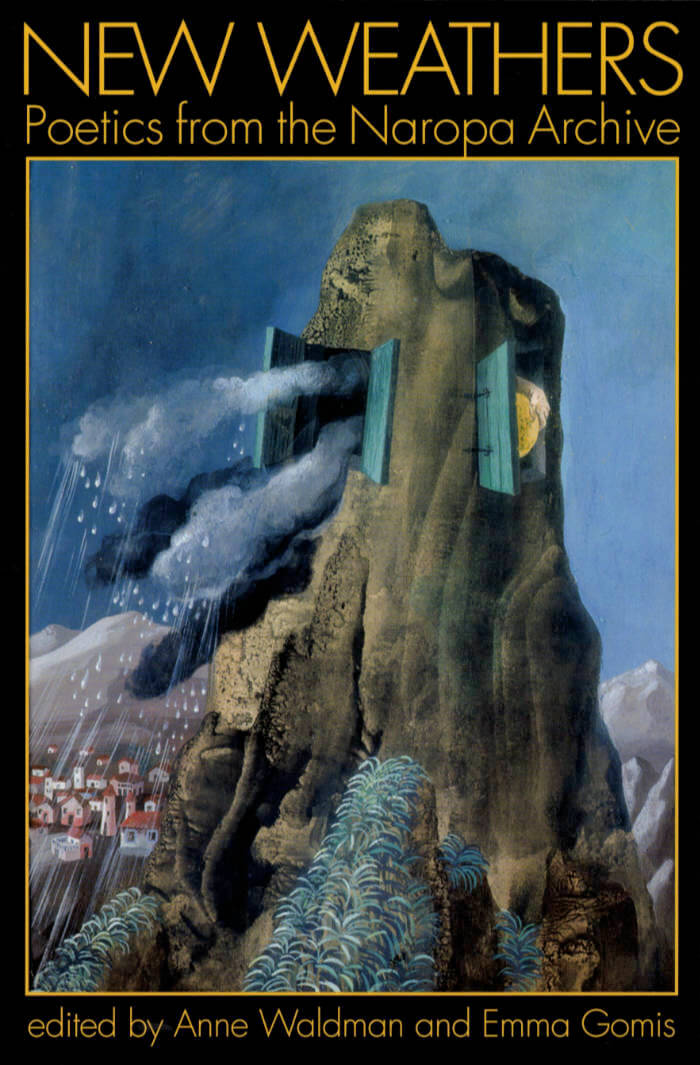
New Weathers: Poetics from the Naropa Archive: Lectures from the Naropa Archive
A collection of lectures transcribed from the audio archives of Naropa University's Summer Writing Program that represent a continuing lineage of experimental literary movements.
New Weathers asks us to consider how poetics might embolden deeper engagements with the world. Collected from the alternative education zone founded by Anne Waldman and Allen Ginsberg with the aim of opening up discourse and fostering political engagement, these texts invoke issues of gender and race-based injustice, the global climate crisis, and our possible extinction. They weave through our poetic community, the conversations we are having, the issues we are facing—our "new weathers" to posit strategies of resistance.
List of Contributors: Paula Gunn Allen, Amiri Baraka, Dan Beachy-Quick, Sherwin Bitsui, Robin Blaser, William S. Burroughs, Julie Carr, J'Lyn Chapman, Jos Charles, Jack Collom, Samuel R. Delany, kari edwards, Tongo Eisen-Martin, Tonya M. Foster, Forrest Gander, Alan Gilbert, Allen Ginsberg, Renee Gladman, Robert Glück, Lyn Hejinian, Lisa Jarnot, Kevin Killian, Thurston Moore, Fred Moten, Eileen Myles, Hoa Nguyen, Alice Notley, Akilah Oliver, M. NourbeSe Philip, Margaret Randall, Roger Reeves, Ariana Reines, Lisa Robertson, Ed Sanders, Andrew Schelling, Cedar Sigo, Eleni Sikelianos, Harry Smith, Edwin Torres, Cecilia Vicuña, Asiya Wadud, Peter Warshall, Eliot Weinberger, Peter Lamborn Wilson, and Ronaldo V. Wilson.

What Is Poetry? (Just Kidding, I Know You Know)
A selection of interviews and rare photos from the legendary St. Mark's Poetry Project for its 50th anniversary season.
The Poetry Project at St. Mark's Church was founded in 1966 for the overlapping circles of poets in the Lower East Side of New York. These interviews from The Poetry Project Newsletter form a kind of conversation over time between some of the late 20th century's most influential poets and artists, who have come together in this legendary venue over the past 50 years.
Includes interviews with Charles North, Anne Waldman, Bernadette Mayer, David Rattray, Allen Ginsberg, Kenneth Koch, Harryette Mullen, Barbara Henning, David Henderson, Lisa Jarnot, Alice Notley, Ed Sanders, Samuel Delany, Harry Matthews, Victor Hernandez Cruz, Renee Gladman, Lorenzo Thomas, Fred Moten, Stan Brakhage, Alex Katz, Lewis Warsh, Ron Padgett, Maggie Nelson, Wayne Koestenbaum, Eileen Myles, and more.
"I find it one of the liveliest points of communication in the American poetry world. There is an incredible excitement to come to the church and read one's poems to the many other poets who congregate there, drawn to the church by its own energy and thrust."—Donald Hall
From the introduction, by Anselm Berrigan: "For the poets closely involved with the Poetry Project since, and subsequent to, its inception, the interviews were an opportunity to speak directly to a community one could perceive as known, imaginary, expanding, unwieldy, intermittent, formative, desperately necessary, and sometimes peculiarly unsatisfying all at once. Community being the kind of term that often implies everything and nothing simultaneously, with the bottom falling out of the word depending on who happens to be wielding it. Poets can be particularly adept at using and exposing such terms."
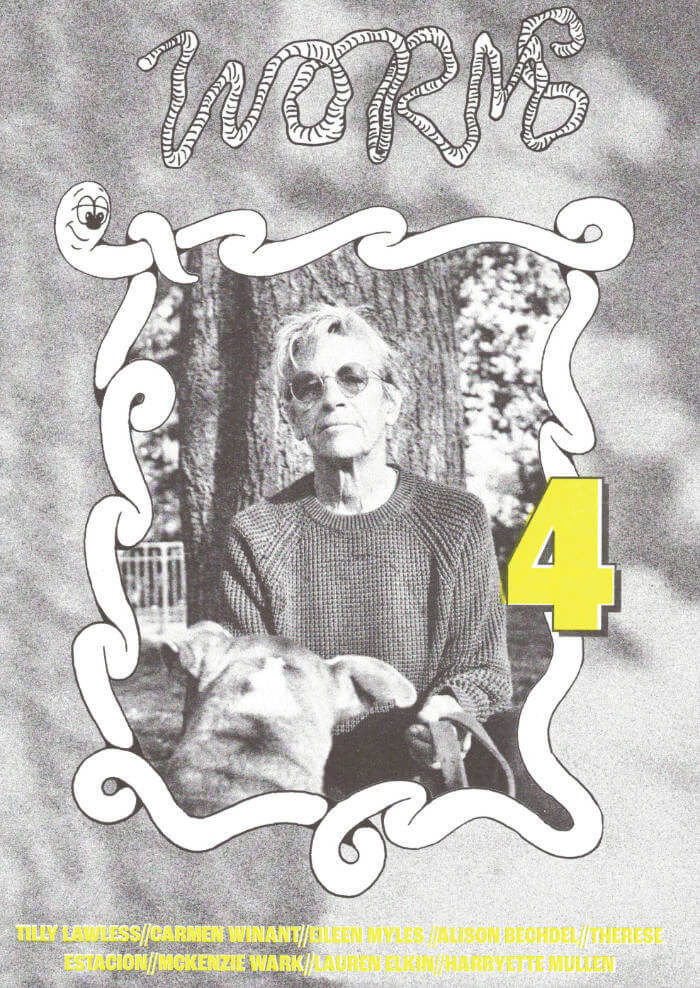
Worms #4 'The Flaneuse'
Worms #4 looks at psychogeography and the Situationists from a non-male perspective. Taking flâneuserie and the creative benefits of a good walk as its starting point, the issue features conversations with Eileen Myles, Alison Bechdel, Lauren Elkin, Tilly Lawless, Mckenzie Wark, Therese Estacion and Carmen Winant. 2021 was a fraught year for walking; the pandemic restricted our right to movement, while the murders of women walking in London led us to ask the question: how can the act of walking the streets spark political conversation?
Also included with this issue is an affirmation booklet in collaboration with @somuchluvindisclub
Worms is a biannual literary style magazine that celebrates female and non-binary writer culture.
‘If you’re reading this, you are a worm. We’re all worms, and in the end, we’re going to be eaten by them. As a (book)worm, you will fertilize your mind with glorious words…’
Founded in 2019 by Clem Macleod during her degree at Central Saint Martins, Worms began with a mad, spiralling obsession with the late Kathy Acker.
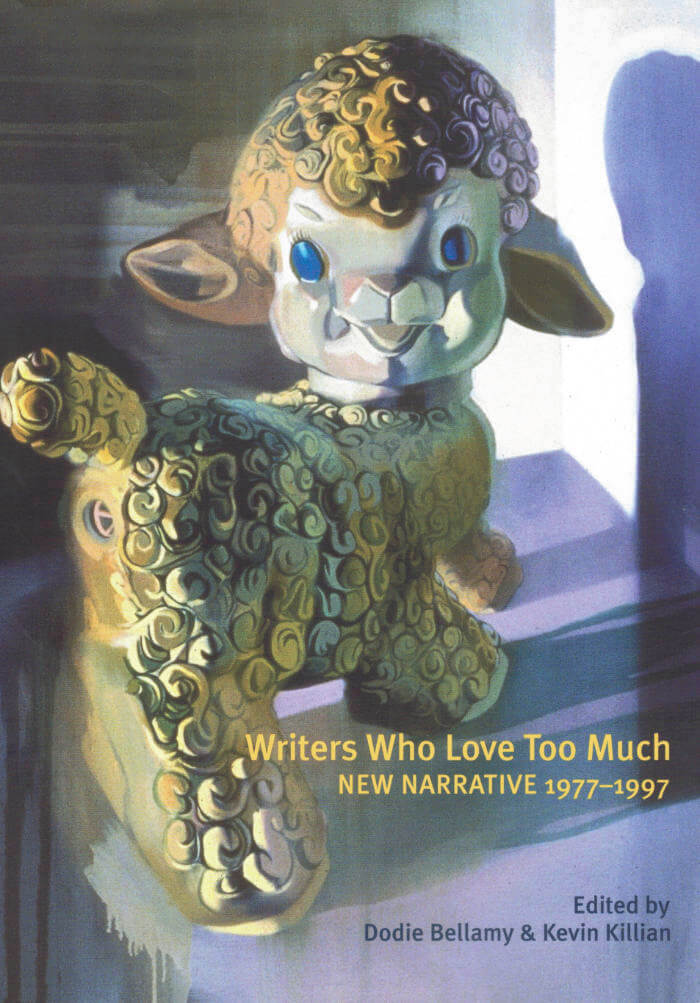
Writers Who Love Too Much: New Narrative 1977-1997
This long overdue anthology of New Narrative includes both classic New Narrative texts and rare supplementary materials, allowing the movement fueled by punk, pop, porn, French theory, and social struggle to bound back to life, ripe with dramatic propulsion, to form a new map of late 20th century creative rebellion.
"Gossipy and uninhibited, its breath is hot in your ear. It wants to tell you everything, and it wants you to overshare back." — M. Milks
"One of New Narrative's all-time best jokes is about the movement itself. It's the parodic motto that Bellamy formulates in Academonia for New Narrative "at its worst" "I have sex and I'm smarter than you." But "sex without fantasy," Camille Roy posits, "is nothing." The pieces compiled in Writers Who Love Too Much don't restrict fantasy. They use, as Boone says, eros, rather than facts, as the matter of narrative. Sex and fantasy are for New Narrative the stuff of ordinary life." — Jean-Thomas Trembla
Contributors include: Steve Abbott, Kathy Acker, Michael Amnasan, Roberto Bedoya, Dodie Bellamy, Bruce Benderson, Charles Bernstein, Nayland Blake, Bruce Boone, Lawrence Braithwaite, Rebecca Brown, Kathe Burkhart, Marsha Campbell, Dennis Cooper, Sam D'Allesandro, Gabrielle Daniels, Leslie Dick, Cecilia Dougherty, Bob Flanagan, Robert Glück, Judy Grahn, Brad Gooch, Carla Harryman, Richard Hawkins, Ishmael Houston-Jones, Gary Indiana, Edith A. Jenkins, Kevin Killian, Chris Kraus, R. Zamora Linmark, Eileen Myles, John Norton, F.S. Rosa, Camille Roy, Sarah Schulman, Gail Scott, David O. Steinberg, Lynne Tillman, Matias Viegener, Scott Watson, Laurie Weeks.

Cruiser L'Utopie
First French translation of José Esteban Muñoz's field defining work—an intellectual inspiration for a generation of LGBTQ scholars.
Cruiser l'utopie describes a movement, a drifting advance between theory, philosophy, art criticism and personal narrative. The works cited, narrated, are mixed with family or individual narrative and more academic considerations. This practice of queer theory and aesthetics is part of a new interpretation of hope as perceived by philosopher Ernst Bloch, articulated with black radical thought and the poetic research of authors such as Fred Moten and Eileen Myles.
Muñoz focuses here on the period of the Stonewall revolts (New York, 1969) and analyzes, for example, the works of Frank O'Hara, King Jone/Amiri Baraka, Andy Warhol, Kevin Avance, Samuel R. Delany, Fred Herko, Jill Johnston, Ray Johnson. Queer theory as a study has a new way of researching and writing, a form of hybridity between philosophy and cultural studies. The critique is, as if by anticipation, contained in the counter-normative artistic practice and daily life whose narratives, both subjective and historical, hint at a queer future, a place of transformation and liberation.
The text, translated from English by Alice Wambergue, is accompanied by a preface by Elisabeth Lebovici and a poem by Fred Moten.
José Esteban Muñoz (1967 - 2013) is a queer scholar and art theorist. Author of The Sense of Brown (published posthumously in 2020), Cruising Utopia, the Aftermath and Elsewhere of Queer Advent (2009), and Disidentifications: Queers of Color and the Performance of Politics (1999), he edited the collective works Pop Out: Queer Warhol (1996) and Everynight Life: Culture and Dance in Latin/o America (1997). Muñoz has long taught in the Department of Performance Studies at New York University's Tisch School of the Arts and edited the Sexual Cultures series at New University Press, where he has published works such as Jack Halberstam and Samuel Delany.